It is official in Colorado:
Colorado Officially Becomes America’s First Legal Marijuana State
Posted May 29, 2013
Colorado Governor John Hickenlooper signed off on the state’s new recreational cannabis laws, thus making Colorado the first “officially” legal state in America. Washington will soon follow suit, meaning there’s only 48 states left to go!
While it’s an exciting development and a historic day in America (and the world’s marijuana community), there are a couple hiccups in these six bills that will give some pause. Here are those six regulations, which will “seek to regulate the newly legal drug and keep it away from children, without being so strict that weed stays in the black market:”
YOU CAN COME BUY IT, BUT YOU CAN’T TAKE IT HOME: Visitors to Colorado will have purchasing limits of a quarter-ounce of marijuana in a single transaction. The law doesn’t ban adults over 21 from possessing a full ounce, residents or not. But the purchasing limits were seen as an effort to reduce interstate trafficking and help persuade the federal government not to crack down on recreational sales. (Note: Ironically, of all the 6 Measures, this will have the biggest impact, turning Colorado into a tourist stop for cannabis enthusiasts around the world. Exactly what the Governor said he did not want the state “to be known for.”)
- THE POT BUSINESS ISN’T OPEN FOR BUSINESS, YET: Colorado’s marijuana industry will for the first few months be limited to people already licensed to sell or produce medical marijuana. Even once the grandfathering period expires, licensees will need to be Colorado residents for two years, and investors will face residency requirements, too. The residency requirements were added to try to prevent Colorado from becoming a production ground for criminal drug cartels.
- THE CAMERAS BETTER BE ROLLING WHEN YOU GROW IT: Colorado tried and failed to establish constant video surveillance of medical marijuana, establishing a seed-to-sale tracking system to keep the industry honest. The vaunted system hasn’t worked out as expected because of a lack of money, but the agency that oversees pot says it has learned its lesson and will have the money to follow through with seed-to-sale tracking next year.
- NOT EVERY TOWN WILL SELL IT: Colorado’s marijuana framework gives local and county governments broad power to ban retail pot sales if they wish, though home growing will be allowed statewide. Legalization backers say the next Colorado political battle to watch will be which communities ban pot shops, prompting the possibility that marijuana sales will be largely concentrated in big cities that currently allow retail medical marijuana shops.
- MARIJUANA CLUBS AREN’T SAFE: Entrepreneurs in Colorado have been testing the new marijuana law in recent months by opening private clubs that allow communal pot smoking, but no sales, for a membership fee. The legislation tries to crack down on the spread of such cannabis clubs by stating that they’re not exempt from clean indoor air laws, unlike membership cigar clubs.
- KIDS GET NEW PROTECTIONS: Colorado’s new laws aim to prevent youth marijuana use as much as possible. The laws create a new crime of sharing marijuana with someone under 21, an analogy to current delinquency laws and alcohol. The laws also mandate child-proof packaging for marijuana sales, and bans types of marketing thought to appeal to kids, such as cartoon characters in advertisements and packaging. The new 10 percent marijuana sales tax will be used in part on educational campaigns telling people under 21 to avoid the drug.
- DON’T SMOKE AND DRIVE: After years of debate, Colorado now has as blood-level limit for marijuana and drivers. The law says that juries can presume drivers are too stoned to drive if their blood contains more than 5 nanograms per milliliter of THC, marijuana’s psychoactive ingredient. Washington state adopted the same driving standard on the ballot last year, but Colorado left the question to the state Legislature. [Seattle Times via AP]
It’s a monumental moment indeed, and a mostly triumphant day for Marijuana. But, as we’ve mentioned before, it’s still not all fun and games in Colorado’s pot market. Driving after a hit off a joint can still land you in jail, weed clubs are unfortunately prohibited, and safe access in certain towns will not be guaranteed.
That said, it’s a step in the right direction and a moment worth lighting up for and celebrating. But Colorado-and the rest of our country-still have a long, long way to go.
Posted May 29, 2013
Colorado Governor John Hickenlooper signed off on the state’s new recreational cannabis laws, thus making Colorado the first “officially” legal state in America. Washington will soon follow suit, meaning there’s only 48 states left to go!
While it’s an exciting development and a historic day in America (and the world’s marijuana community), there are a couple hiccups in these six bills that will give some pause. Here are those six regulations, which will “seek to regulate the newly legal drug and keep it away from children, without being so strict that weed stays in the black market:”
YOU CAN COME BUY IT, BUT YOU CAN’T TAKE IT HOME: Visitors to Colorado will have purchasing limits of a quarter-ounce of marijuana in a single transaction. The law doesn’t ban adults over 21 from possessing a full ounce, residents or not. But the purchasing limits were seen as an effort to reduce interstate trafficking and help persuade the federal government not to crack down on recreational sales. (Note: Ironically, of all the 6 Measures, this will have the biggest impact, turning Colorado into a tourist stop for cannabis enthusiasts around the world. Exactly what the Governor said he did not want the state “to be known for.”)
- THE POT BUSINESS ISN’T OPEN FOR BUSINESS, YET: Colorado’s marijuana industry will for the first few months be limited to people already licensed to sell or produce medical marijuana. Even once the grandfathering period expires, licensees will need to be Colorado residents for two years, and investors will face residency requirements, too. The residency requirements were added to try to prevent Colorado from becoming a production ground for criminal drug cartels.
- THE CAMERAS BETTER BE ROLLING WHEN YOU GROW IT: Colorado tried and failed to establish constant video surveillance of medical marijuana, establishing a seed-to-sale tracking system to keep the industry honest. The vaunted system hasn’t worked out as expected because of a lack of money, but the agency that oversees pot says it has learned its lesson and will have the money to follow through with seed-to-sale tracking next year.
- NOT EVERY TOWN WILL SELL IT: Colorado’s marijuana framework gives local and county governments broad power to ban retail pot sales if they wish, though home growing will be allowed statewide. Legalization backers say the next Colorado political battle to watch will be which communities ban pot shops, prompting the possibility that marijuana sales will be largely concentrated in big cities that currently allow retail medical marijuana shops.
- MARIJUANA CLUBS AREN’T SAFE: Entrepreneurs in Colorado have been testing the new marijuana law in recent months by opening private clubs that allow communal pot smoking, but no sales, for a membership fee. The legislation tries to crack down on the spread of such cannabis clubs by stating that they’re not exempt from clean indoor air laws, unlike membership cigar clubs.
- KIDS GET NEW PROTECTIONS: Colorado’s new laws aim to prevent youth marijuana use as much as possible. The laws create a new crime of sharing marijuana with someone under 21, an analogy to current delinquency laws and alcohol. The laws also mandate child-proof packaging for marijuana sales, and bans types of marketing thought to appeal to kids, such as cartoon characters in advertisements and packaging. The new 10 percent marijuana sales tax will be used in part on educational campaigns telling people under 21 to avoid the drug.
- DON’T SMOKE AND DRIVE: After years of debate, Colorado now has as blood-level limit for marijuana and drivers. The law says that juries can presume drivers are too stoned to drive if their blood contains more than 5 nanograms per milliliter of THC, marijuana’s psychoactive ingredient. Washington state adopted the same driving standard on the ballot last year, but Colorado left the question to the state Legislature. [Seattle Times via AP]
It’s a monumental moment indeed, and a mostly triumphant day for Marijuana. But, as we’ve mentioned before, it’s still not all fun and games in Colorado’s pot market. Driving after a hit off a joint can still land you in jail, weed clubs are unfortunately prohibited, and safe access in certain towns will not be guaranteed.
That said, it’s a step in the right direction and a moment worth lighting up for and celebrating. But Colorado-and the rest of our country-still have a long, long way to go.


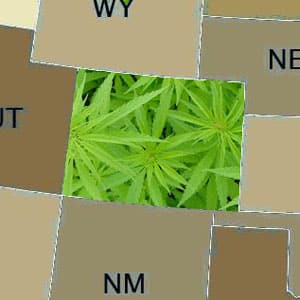
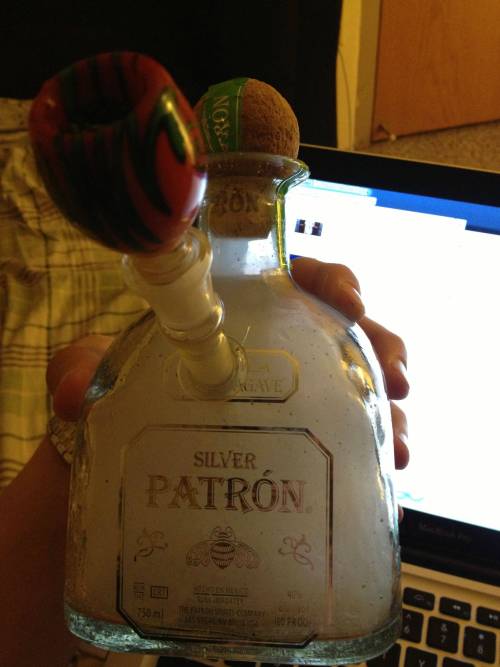


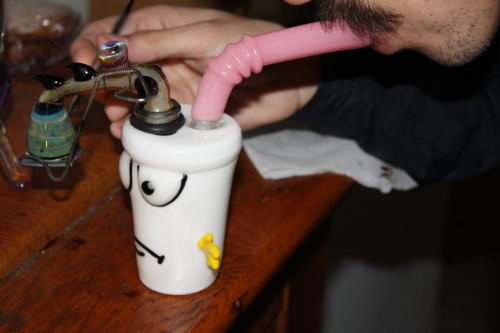


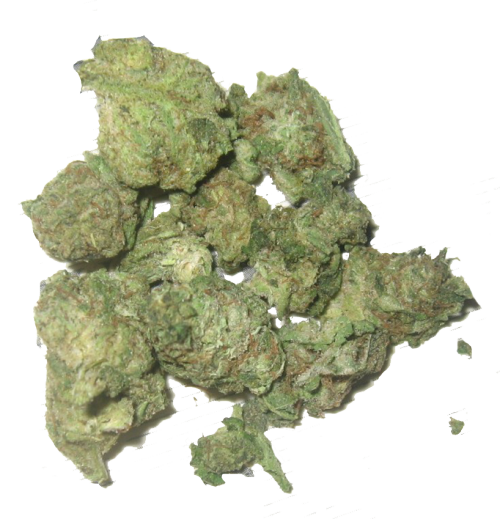
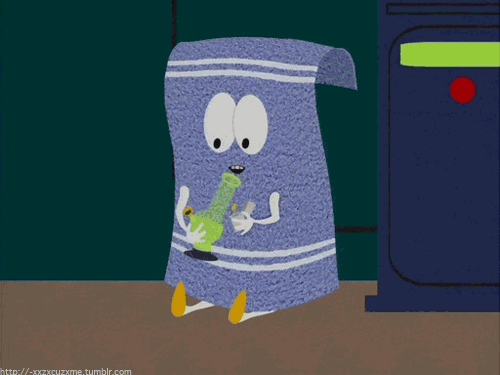


Comment